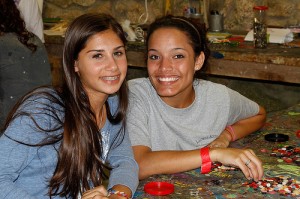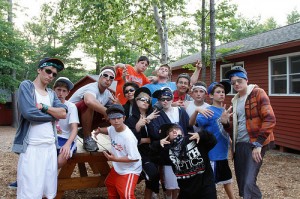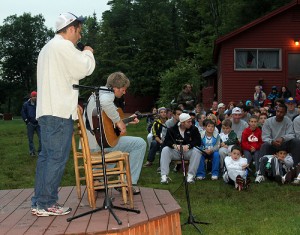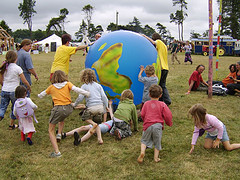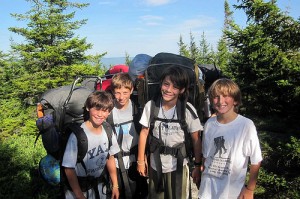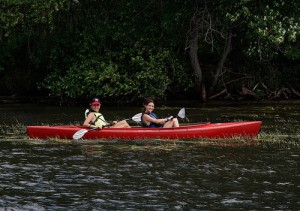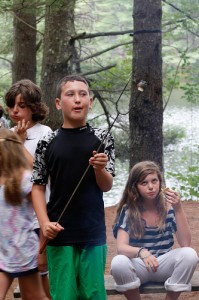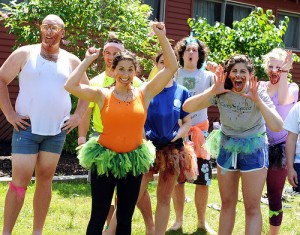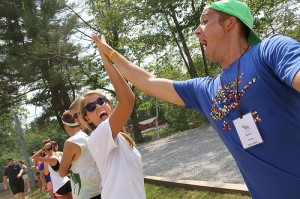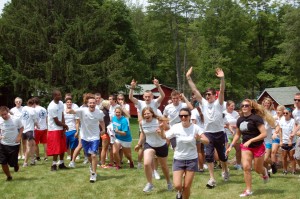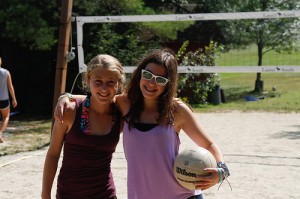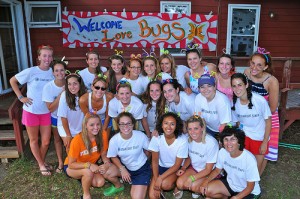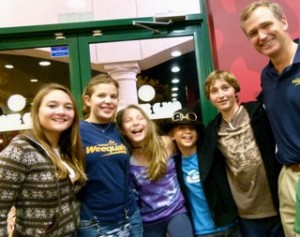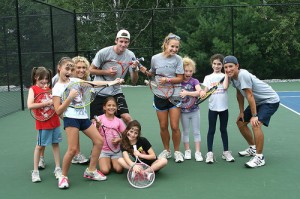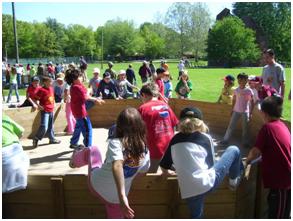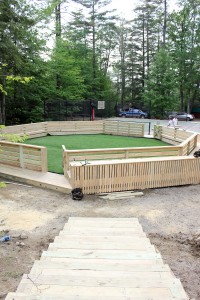 En tant que parents, on nous incite souvent à préparer nos enfants à un monde nouveau et « global ». Alors que certains expliquent que les fondements des interactions mondiales trouvent leurs origines dans les siècles passés, les technologies électroniques et de transport actuelles rendent les individus à travers le monde encore plus reliés et interdépendants. Ainsi, comment préparer nos enfants et leur transmettre l’expérience nécessaire afin qu’ils s’ouvrent au monde ?
En tant que parents, on nous incite souvent à préparer nos enfants à un monde nouveau et « global ». Alors que certains expliquent que les fondements des interactions mondiales trouvent leurs origines dans les siècles passés, les technologies électroniques et de transport actuelles rendent les individus à travers le monde encore plus reliés et interdépendants. Ainsi, comment préparer nos enfants et leur transmettre l’expérience nécessaire afin qu’ils s’ouvrent au monde ?
Tout naturellement, les voyages sont une manière évidente d’aider nos enfants à augmenter leur capital culturel ; les colonies de vacances peuvent également les aider à stimuler leur pensée globale et leurs qualités de manière spécifique. La colonie de vacances est un endroit où les enfants de par le monde, et de différentes régions des Etats-Unis, se lient les uns aux autres, établissent des amitiés durables, essayent de nouvelles choses et pratiquent la vie en communauté. À AFSC, par exemple, alors que seuls quelques jeunes proviennent de l’étranger, ils apportent beaucoup à la vie en groupe et à la communauté dans son ensemble. Chacun tire parti d’un mélange varié d’enfants au sein de la collectivité. Les enfants peuvent pratiquer une autre langue, ils s’enrichiront certainement des différentes coutumes grâce aux interactions quotidiennes et auront le temps de bien s’en imprégner. Plus important encore, ils apprendront comment échanger respectueusement avec des personnes aux opinions divergentes, dont la vision des choses n’est pas tout à fait la même de la leur.
Dans son livre, Growing Up Global : Raising Children to Be At Home in the World, Homa Sabet Tavangar indique que la première  étape en vue de développer des perspectives globales exige « d’adopter la mentalité pour se faire un ami et pour devenir un bon ami ». Se faire des amis est synonyme de qualités universelles comme la compassion et le respect, et établir des amitiés durables au camp est une partie non-négligeable de toute cette expérience. Nos conseillers et notre personnel sont formés et prêts à aider les jeunes à évoluer en ce sens, à déployer de nouveaux talents si nécessaire et sont de véritables modèles soucieux de leurs prochains. Tavangar explique que différentes versions de la Règle d’or, ou le « Ne fais pas à autrui ce que tu n’aimerais pas que l’on te fasse » imprègnent toutes les cultures et traditions de foi, et s’en inspire très largement dans son livre. Quand les enfants épousent les valeurs universelles consistant à s’occuper les uns des autres, ils ont recours à l’humilité, à la curiosité et à la compassion dont découlent alors de vraies amitiés – et c’est ce qui fait un citoyen du monde.
étape en vue de développer des perspectives globales exige « d’adopter la mentalité pour se faire un ami et pour devenir un bon ami ». Se faire des amis est synonyme de qualités universelles comme la compassion et le respect, et établir des amitiés durables au camp est une partie non-négligeable de toute cette expérience. Nos conseillers et notre personnel sont formés et prêts à aider les jeunes à évoluer en ce sens, à déployer de nouveaux talents si nécessaire et sont de véritables modèles soucieux de leurs prochains. Tavangar explique que différentes versions de la Règle d’or, ou le « Ne fais pas à autrui ce que tu n’aimerais pas que l’on te fasse » imprègnent toutes les cultures et traditions de foi, et s’en inspire très largement dans son livre. Quand les enfants épousent les valeurs universelles consistant à s’occuper les uns des autres, ils ont recours à l’humilité, à la curiosité et à la compassion dont découlent alors de vraies amitiés – et c’est ce qui fait un citoyen du monde.
Ainsi, où que nous allions dans le monde, c’est l’expérience qui consiste à décomposer les éléments de cultures diverses et à voir ce qui les rend semblables ou distincts, qui nous prépare à l’interaction avec l’autre. Pour les enfants, une petite étape vers l’acceptation de nouvelles cultures peut être de surmonter la crainte de nouveaux aliments ou de se trouver loin du foyer, au camp, là où les choses sont « différentes » – après tout, chaque camp et ce, chaque année, possède un caractère ou une culture qui lui est propre. Par exemple, de nombreux jeunes s’unissent pour surmonter la crainte que représentent de nouveaux aliments et c’est ce genre d’expérience qui prépare les enfants au futur.
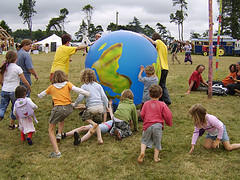 S’ouvrir au monde n’est pas uniquement synonyme de bizness dans l’économie mondiale. Il s’agit de désirer échanger avec le père kenyan qui entraîne une équipe de football locale, avec un voisin turc dont le style vestimentaire dénote ou avec un Américain qui s’attend à ce que son électricité fonctionne correctement ! En d’autres termes, il s’agit d’être curieux des différences plutôt que d’en avoir peur, de donner de la valeur aux amitiés que nous lions avec les personnes, aussi différentes soient-elles, que nous sommes amenés à rencontrer. Les psychologues associent l’amitié à la santé d’un individu et par là même, à sa capacité à survivre – les amitiés sont donc primordiales pour se sentir aussi bien à l’aise dans notre peau que sur notre planète.
S’ouvrir au monde n’est pas uniquement synonyme de bizness dans l’économie mondiale. Il s’agit de désirer échanger avec le père kenyan qui entraîne une équipe de football locale, avec un voisin turc dont le style vestimentaire dénote ou avec un Américain qui s’attend à ce que son électricité fonctionne correctement ! En d’autres termes, il s’agit d’être curieux des différences plutôt que d’en avoir peur, de donner de la valeur aux amitiés que nous lions avec les personnes, aussi différentes soient-elles, que nous sommes amenés à rencontrer. Les psychologues associent l’amitié à la santé d’un individu et par là même, à sa capacité à survivre – les amitiés sont donc primordiales pour se sentir aussi bien à l’aise dans notre peau que sur notre planète.
Nos expériences des colonies de vacances sont une composante clé à la sensibilisation des enfants sur le sujet. Les amitiés et l’expérience acquises au camp perdureront ; en effet, les jeunes continuent d’élargir leurs horizons, échangent avec leurs amis dans le temps et l’espace et découvrent leurs passions.

 570-798-9831
570-798-9831
